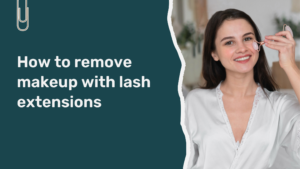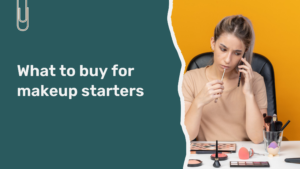Eye makeup refers to cosmetics applied to the eyelids, eyelashes, and surrounding areas to enhance or alter the appearance of the eyes. This can include products like eyeliner, mascara, eyeshadow, and brow gel. Wearing eye makeup can boost confidence and serve aesthetic purposes, but it may also raise questions regarding eye health, especially in clinical settings such as eye exams.
Table of Contents
The Importance of an Eye Exam
An eye exam is a crucial procedure for assessing vision and overall eye health. Regular eye exams help in early detection of potential issues like glaucoma, cataracts, and macular degeneration. For those who wear contact lenses or glasses, eye exams are essential for updating prescriptions to ensure optimal vision correction.
- Frequency of Eye Exams: Adults should typically have an eye exam every two years, while individuals with existing conditions may require more frequent visits.
- What to Expect: Eye exams include a variety of tests that assess visual acuity, eye movement, and eye pressure.
- Signs You Need an Exam: Blurred vision, difficulty focusing, and eye strain can indicate the need for an eye exam.
- Importance for Children: Pediatric eye exams are crucial for detecting issues early in life, as they can significantly affect learning and development.
- Risk Factors: Family history of eye disease, age, and lifestyle choices can increase the importance of regular eye exams.
- Comprehensive Eye Care: A thorough exam not only focuses on vision correction but also checks for overall health conditions.
- Role of Technology: Advancements in technology have enhanced the accuracy of eye exams.
- Eye Health Education: Doctors often provide advice on maintaining eye health during these visits.
- Insurance Coverage: Many insurance plans cover regular eye exams, making them accessible.
- Awareness: Staying informed about eye health is essential for long-term vision preservation.
Potential Effects of Makeup on Eye Health
Wearing eye makeup can have both positive and negative effects on eye health. Understanding these implications is important, especially when considering whether to wear makeup to an eye exam.
- Irritation and Allergies: Some makeup ingredients can cause allergic reactions or irritate sensitive eyes.
- Infection Risk: Wearing makeup can increase the risk of eye infections, particularly if applied or removed improperly.
- Contact Lens Compatibility: Some eye makeup may not be compatible with contact lenses, leading to discomfort or blurred vision.
- Pore Clogging: Eye makeup can potentially clog the pores around the eyes, leading to conditions like styes or chalazia.
- Tearing and Smudging: Eye exams often involve dilating drops, which can cause tears that may wash away makeup or lead to smudging.
- Chemical Sensitivity: Certain chemicals in makeup can react adversely with medications used during eye exams.
- Altered Appearance: Makeup can sometimes obscure symptoms that the eye doctor needs to assess, such as redness or swelling.
- Makeup Hygiene: Proper hygiene practices are crucial to minimizing risks associated with wearing eye makeup.
- Long-lasting Formulas: Products designed to last all day may be more challenging to remove, increasing potential risks.
- Natural Alternatives: Considering natural or hypoallergenic products can minimize potential health issues.
Guidelines for Wearing Eye Makeup to an Eye Exam
While it may be tempting to wear eye makeup to an eye exam for confidence, it’s essential to follow certain guidelines.
- Consultation with Your Doctor: Always check with your eye care provider about their recommendations regarding makeup.
- Minimal Application: If you choose to wear makeup, opt for a minimal and simple application.
- Non-irritating Products: Use hypoallergenic or sensitive formulations to reduce the risk of irritation.
- Avoid Heavy Liners and Mascara: These products can be difficult to remove and may obscure eye health indicators.
- Consider Timing: If possible, consider applying makeup after the exam to avoid issues with dilation.
- Bring Remover: If wearing makeup, bring appropriate makeup remover for use before the exam.
- Educate Yourself: Knowing what products are safe can help mitigate risks associated with wearing makeup.
- Be Prepared for Touch-ups: Have supplies ready for any makeup touch-ups needed post-exam.
- Removal Protocol: Follow a thorough removal protocol to ensure no residue remains before the exam.
- Know Your Eyes: Understanding your eye sensitivity and history can guide makeup decisions.
Types of Eye Makeup to Avoid
Certain types of eye makeup are best avoided when attending an eye exam to ensure eye health and diagnostic accuracy.
- Waterproof Mascara: While it lasts longer, it can be challenging to remove completely.
- Heavy Eyeliner: Thick liners can make it difficult for doctors to assess the eyelid and surrounding area.
- Glitter and Shimmer Products: These can leave residue that interferes with eye examinations.
- False Lashes: They may obscure the natural lashes and eye health assessments.
- Cream Formulas: Cream-based products can smudge and cause irritation.
- Old Makeup: Expired products can lead to infections and should be avoided.
- Overly Bold Colors: Bright colors can draw attention away from any eye issues that may need to be assessed.
- Long-lasting Formulas: These can require aggressive removal methods that may irritate the eyes.
- Oil-based Removers: If needed, these should be used sparingly, as they can leave residues that interfere with exams.
- Heavy Eyeshadow: Thick layers can lead to difficulty assessing the eyelid and surrounding areas.
Impact of Eye Makeup on Diagnostic Tests
Eye makeup can influence the results of various diagnostic tests performed during an eye exam.
- Visual Acuity Tests: Makeup can cause glare and distort vision during testing.
- Pupil Dilation: Dilation drops can react with certain makeup ingredients, affecting visibility.
- Pressure Tests: Residual makeup may interfere with the accuracy of pressure tests.
- Fundus Examination: Heavy eye makeup can obscure the view of the retina and optic nerve.
- Slit Lamp Exam: Makeup residue can complicate examinations using this device.
- Corneal Sensitivity Tests: Certain makeup products can irritate the cornea, impacting results.
- Retinal Imaging: Makeup may reflect light and obscure retinal images.
- Allergy Testing: If you have allergies, makeup may mask symptoms that need to be assessed.
- Tear Breakup Time Testing: Makeup can influence the stability of tears, affecting test results.
- Follow-up Exams: Makeup can lead to the need for additional exams to assess effects on eye health.
Pre-Exam Preparations: Makeup Removal
Preparing for an eye exam involves careful consideration of makeup removal to ensure an effective evaluation.
- Choose the Right Remover: Use a gentle makeup remover that effectively cleans without irritating the eyes.
- Start Early: Begin removing makeup at least an hour before the appointment to allow for any residual irritation to subside.
- Thorough Cleaning: Ensure all makeup, especially from the eyelids and lashes, is thoroughly removed.
- Avoid Rubbing: Be gentle while removing makeup to prevent irritation or injury.
- Follow Up with a Rinse: Rinse your eyes with clean water after using makeup remover.
- Use Cotton Pads: These can help in the gentle removal of makeup without leaving fibers behind.
- Test for Residue: Check for any lingering makeup with a clean mirror before leaving for your appointment.
- Hydrate Your Eyes: If you wear contacts, consider using lubricating eye drops after makeup removal.
- Plan for Time: Allocate enough time for both makeup removal and travel to ensure you arrive on time.
- Communicate with Staff: If you experience any irritation post-removal, inform the eye care staff immediately.
Professional Opinions on Eye Makeup
Understanding professional opinions on wearing eye makeup during eye exams can help guide decisions.
- Ophthalmologist Recommendations: Many recommend avoiding eye makeup to ensure accurate assessments.
- Optometrist Insights: Optometrists often emphasize the importance of clear visibility during exams.
- Makeup Artists’ Perspective: Some artists suggest using minimal makeup for clients who need to attend exams.
- Patient Experiences: Patient testimonials often highlight the benefits of arriving makeup-free for exams.
- Allergy and Sensitivity Views: Professionals often caution against makeup for individuals with allergies or sensitivities.
- Medical Guidelines: Many medical facilities have specific guidelines regarding makeup for exams.
- Informed Consent: Professionals may discuss potential risks associated with makeup during consultations.
- Cultural Sensitivity: Different cultures may have varying views on makeup use during medical visits.
- Educated Choices: Professionals encourage patients to make informed decisions based on eye health.
Alternatives to Eye Makeup for Eye Exams
If you prefer not to wear eye makeup for your eye exam, there are several alternatives that can enhance your appearance while maintaining eye health.
- Natural Look: Embracing a natural look allows your eyes to breathe without the interference of cosmetics.
- Moisturizing Eye Creams: These can enhance the appearance of your skin around the eyes without any irritation.
- Colored Contact Lenses: For those who want to change their eye color, colored contact lenses can provide a fresh look without needing makeup.
- Lash Growth Serums: These can help enhance your lashes naturally over time, reducing the need for mascara.
- Gentle Eyebrow Products: A soft brow gel can help groom your brows without heavy application.
- Hydrating Eye Drops: These can keep your eyes looking bright and fresh, especially if they tend to feel dry.
- Eyewear as Accessories: Stylish glasses can serve as a fashionable alternative to eye makeup while providing a polished look.
- Eyelash Perms: Perming your lashes can create a curled look without mascara, offering a more natural appearance.
- Skin Care Products: Focusing on a good skincare routine can enhance your complexion and draw attention to your eyes naturally.
- Light Tints: If you want a hint of color, consider a light tint or stain for the lips and cheeks that won’t conflict with your eye exam.
How to Prepare for an Eye Exam
Proper preparation for an eye exam can enhance the experience and ensure that your eye doctor gets the most accurate information possible.
- Schedule Wisely: Choose a time when you are least likely to be rushed or stressed.
- Know Your History: Be prepared to discuss your family and personal medical history, especially related to eye health.
- List Your Symptoms: If you have been experiencing vision problems, write them down to discuss with your doctor.
- Bring Your Glasses/Contacts: If you wear corrective lenses, bring them along to the appointment.
- Avoid New Products: Refrain from trying new eye makeup or skincare products in the days leading up to the exam to avoid unexpected reactions.
- Plan for Dilation: Be aware that dilation drops may be used during your exam, affecting your ability to drive afterward.
- Communicate Needs: Inform the staff about any specific concerns or needs before your appointment begins.
- Arrive Early: This will allow you to fill out necessary paperwork and settle in before your exam.
- Bring Necessary Documents: Have your insurance card and identification ready for a smooth check-in process.
- Follow Pre-Exam Instructions: If your doctor provides specific instructions prior to your appointment, be sure to follow them carefully.
Summary Table of Information
| Topic | Key Points |
| Importance of an Eye Exam | Regular check-ups, early detection, visual acuity tests |
| Potential Effects of Makeup | Irritation, infections, compatibility with contacts |
| Guidelines for Wearing Makeup | Consult your doctor, minimize application, use non-irritating products |
| Types of Eye Makeup to Avoid | Waterproof mascara, heavy eyeliner, glitter products |
| Impact on Diagnostic Tests | Can obscure results, affect pressure tests |
| Pre-Exam Preparations | Gentle removal, planning time, know your history |
| Professional Opinions | Many recommend avoiding makeup for accurate assessments |
| Alternatives to Eye Makeup | Natural look, hydrating products, stylish eyewear |
| Preparing for an Eye Exam | Schedule wisely, communicate needs, arrive early |




